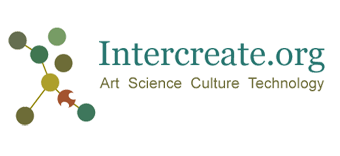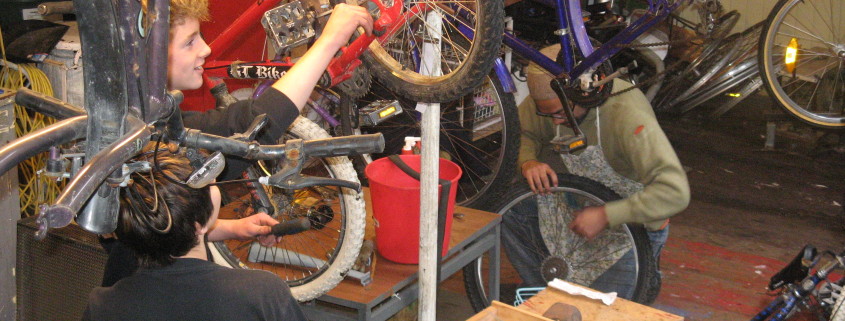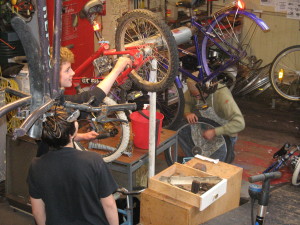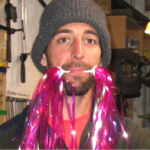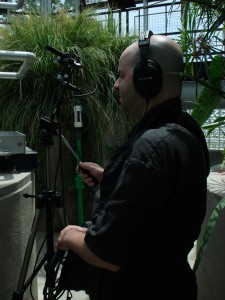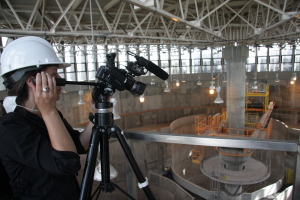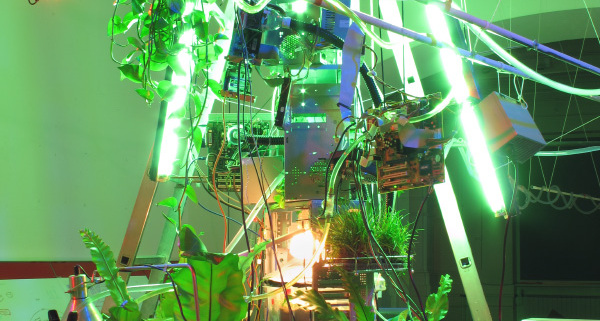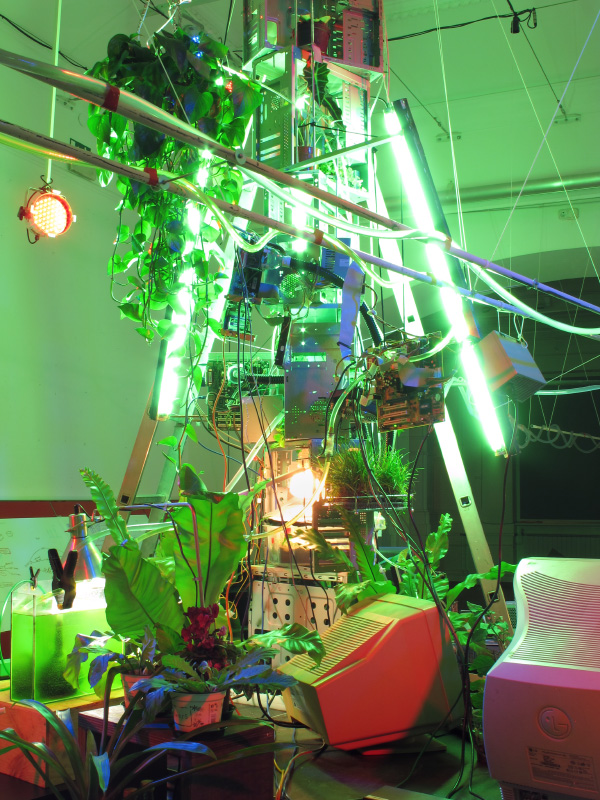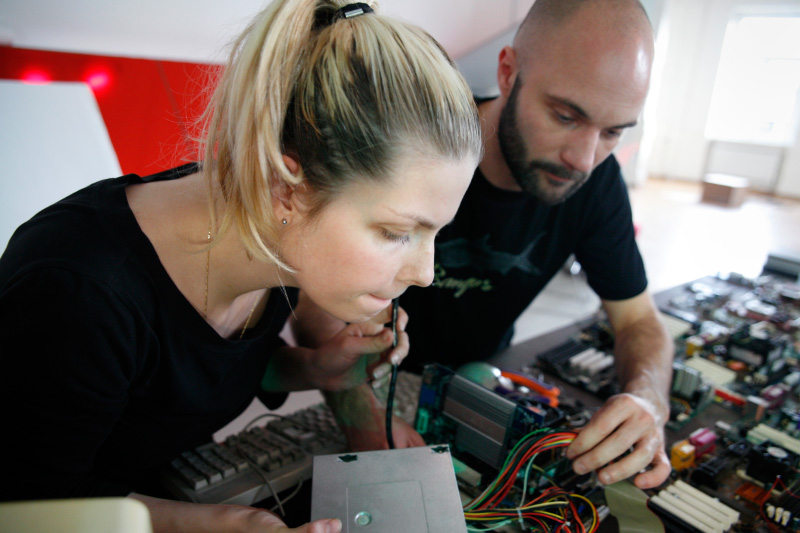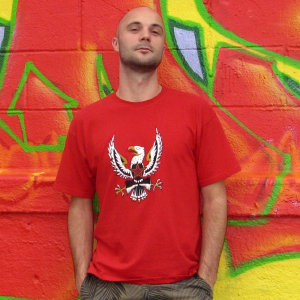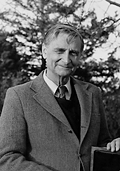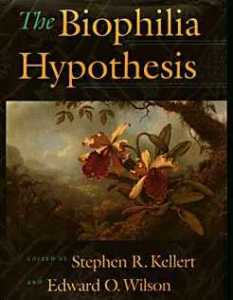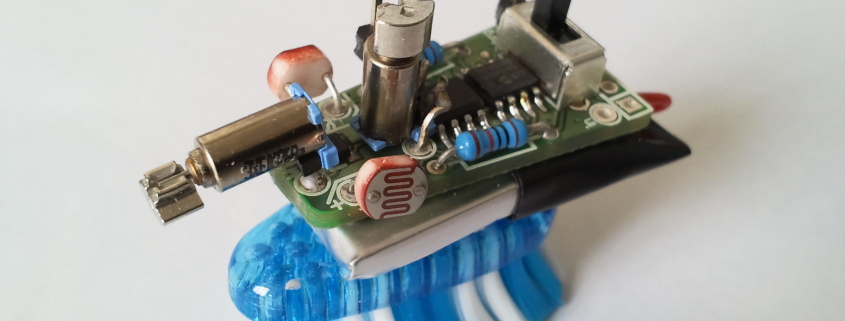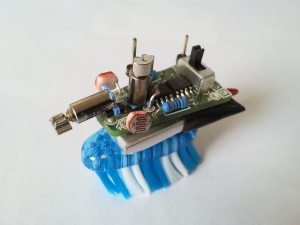Miniature Green Bikes (donate or pimp your old rides!)
Green Bikes is a community bike recycling (fixing, modding, reselling very cheap or giving away) scheme.
During SCANZ we will hold a miniature, two-week version of the scheme in order to try to get all our residency participants and local people on safe, self-propelled, low-carbon transport.
The different parts of the scheme that will be going on during the 2011 SCANZ event are as follows below, and we welcome your participation.
Bike refurbishment – donate your old bike:
Do you have an old bike going unloved or unused? The bikes will be refurbished for use during the residency, and then sold to the public, with all proceeds going to Hive Taranaki, our regional environment centre.
Three ways to donate your bike:
1. Drop off at WITT reception between January 5 and 10.
2. Drop off at New Plymouth District Council reception on Tuesday 11 January between 1-5pm.
3. Email benefieldn@npdc.govt.nz to arrange for your bike to be collected.
Participate in the workshops:
Mini Green Bikes will run from 10am–4pm each day at 109 Devon Street West, so that you can also bring in your bike to do any of the below.
- Bike Fixin’ — Get some fixin’ help and/or to just brush up on bi-pedal machine maintenance with Jonah’s experienced help.
- Bike Crates — We invite people to get their bikes ‘crated’ which involves fitting a carrier to their bike if they don’t have one, then simply attaching a beer crate to their carrier using a cheap $3-5 ratchet strap.
- Bike Trailors — Have a go at making a bamboo bike trailor with Jonah’s help, and make your bike that much handier for that little trip to the shops!
- Bike Beautification Workshops — open workshops will be held where you can attempt whatever pimpification you might have in mind for your ride. Bring in the materials you will need, and Jonah can give you a hand putting it together. Contact Jonah if you have any questions. Also have a look here for some crazier ideas to get your thinking moving… !
Green Bikes Schedule:
- Detailed Schedule
18-Jan 10am-4pm Bike crate 19-Jan 10am-4pm Bike trailer 20-Jan 10am-4pm Bike fix 21-Jan 10am-4pm Bike beautification 24-Jan 10am-4pm Bike crate 25-Jan 10am-4pm Bike crate 27-Jan 10am-4pm Bike trailer 28-Jan 10am-4pm Bike beautification
All workshops take place at SCANZ Central, 109 Devon Street West (next to Kina). Workshops times may vary according to need, and you are welcome to stop by at any time.
If you have an idea to discuss or are interested to join in on workshops, please let Jonah know either via the workshop registration form, or by emailing him directly.
Jonah Marinovich of Green Bikes, Whanganui is a long-time grass roots community activist. Almost single-handedly managing and operating the Green Bikes organisation which gathers, salvages and re-sells bikes. Jonah is also a collaborator on the Slow Flow project of Julian Priest, with at least 20 bikes supplied by Green Bikes, upon which one partakes in the slow bike ride journey from Jerusalem on the Whanganui River, down to where it reaches the ocean at the city of Whanganui.
 This project is being supported by the Let’s Go sustainable transport project of the New Plymouth District Council. A package of works funded by NZTA and local partners to ‘fast track’ a community that can change travel behaviour through improved transport choices. More information about the Let’s Go project is available on the New Plymouth District Council site.
This project is being supported by the Let’s Go sustainable transport project of the New Plymouth District Council. A package of works funded by NZTA and local partners to ‘fast track’ a community that can change travel behaviour through improved transport choices. More information about the Let’s Go project is available on the New Plymouth District Council site.
[NB: All registration and contact links have been removed, post-event]
